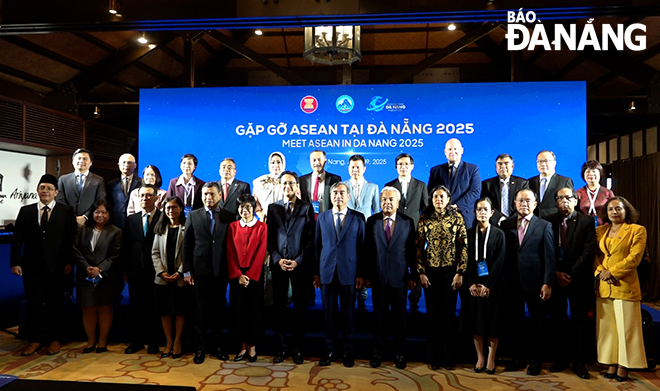Universities seek ties with foreign partners
Domestic universities have more opportunities than ever before to improve quality because of Viet Nam's integration with the rest of the world, a member of the National Council for Education and Human Resource Development has said.
Nguyen Xuan Thang told Viet Nam News on the sidelines of a national education conference held on Sunday that co-operation with international partners would help universities raise their standards.
But he cautioned that Viet Nam should adapt those standards to the local context.
 |
| Illustrative image. – File photo |
Speaking at the meeting, Deputy Minister of Education and Training Bui Van Ga said the ministry was working with the Ministry of Labour, Invalids and Social Affairs on several reform measures.
They include a new training qualifications; a decree on educational stratification and the ranking of universities; and detailed policies for international integration.
Many universities are taking initiatives to improve their training quality, teaching staff, research faculties and international-co-operation activities.
Two national universities were recently included on a list the top 200 universities in Asia, according to Phan Thanh Binh, director of Viet Nam National University at HCM City (VNU-HCM City).
Assoc Professor Nguyen Hoi Nghia, deputy director of VNU-HCM City, said that the university had signed more than 200 agreements with reputable universities in other countries.
VNU-HCM City has been gradually standardising its training programme according to international standards, he said, adding that it had used the "Conceive-Design-Implement-Operate" framework for educational quality assurance.
VNU-HCM City is a member of the ASEAN University Network (AUN), Francophone University Association and Asia-Pacific Association for International Education.
The criteria used by the AUN and the Accreditation Board for Engineering and Technology for education assessment are also being used.
In addition, the Viet Nam University-Ha Noi (VNU-HN) has carried out many advanced programmes for gifted students and international research programmes.
The Advanced Educational Programme in Chemistry, for instance, uses a framework devised by the University of Illinois at Urbana-Champaign (UIUC), which has sent professors to VNU-HN to teach chemistry courses. Students are also required to study English.
However, Binh of VNU-HCM City said that integrating internationally with other institutions had been done without any specific roadmap, and that educational stratification had not been carried out well.
In particular, the number of management and teaching staff using English fluently was low, he said.
Ga added that the government's average allocation of funds per student in Viet Nam was only US$500, which is low compared to other countries in the region.
Professor Pham Phu of HCM City University of Technology added that such a low figure had contributed to the lack of qualified human resources in the country, which hurt competitiveness.
Assoc Prof Tran Chi Dao of VNU-HCM City said the Government should increase tuition fees, and that universities of high quality should have a higher fee.
For poor students, the Government should provide loans with easier criteria, Dao added.
Phu said that many countries had devised policies on income-contingent loans, awarding loans based on income level.
He suggested that the Government should also use international loans for the student loan fund.
The conference was held by VNU-HCM City in co-operation with the National Council for Education and Human Resources Development. It attracted more than 200 domestic and foreign educational experts.




